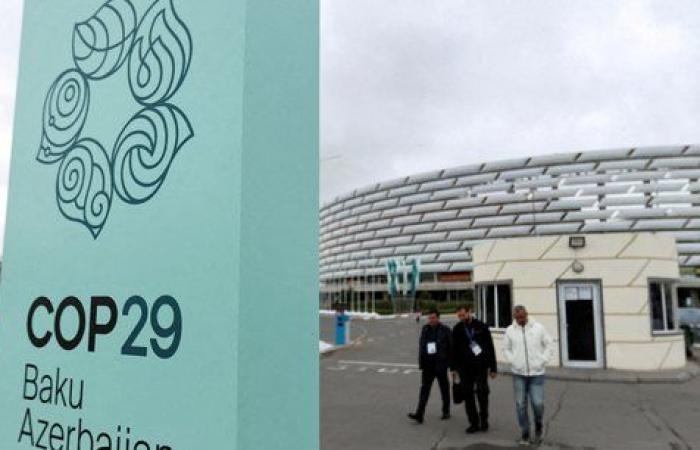
Three hundred billion dollars per year, paid from 2035 by developed countries to poor countries threatened by climate change: the agreement finally concluded on Sunday at COP29 in Baku arouses multiple disappointments, with some actors nevertheless trying to see through the glass. half full.
Speaking on behalf of the African group, Kenyan Ali Mohamed denounces funding “too weak, too late and too ambiguous”while his counterpart from Malawi, Evans Njewa, representing the 45 poorest countries on the planet, denounced an agreement “not ambitious”. “The amount proposed is pitifully low. It’s ridiculous,” believes for her part the Indian delegate Chandni Raina. Small island states deplored “the lack of will to respond to the needs of vulnerable developing countries”, by the voice of Samoan Cedric Schuster.
From 100 to 300 billion
Poor countries were in fact asking for more than twice as much to adapt to floods, heatwaves and droughts, but also to invest in low-carbon energies. European countries, the United States, Canada, Australia, Japan and New Zealand, historically responsible for climate change, have agreed to increase from 100 billion today to “at least $300 billion” annual loans and grants to developing countries by 2035. But in times of fiscal tightening and political upheaval, they have refused to go beyond that amount. A result also judged “disappointing” et “not up to the challenge” by the French Minister of Ecological Transition Agnès Pannier-Runacher, who regretted “an absence of leadership from the presidency” Azerbaijani.
The European commissioner in charge of climate negotiations, Wopke Hoekstra, also regretted a lack of ambition in terms of reducing greenhouse gases in all countries. Postponing this debate until next year “is a failure”also denounces Kévin Magron, French ambassador for the climate. One of the other texts planned for adoption, supposed to deepen the exit from fossil fuels launched by COP28 in Dubai, could not be adopted either.
“No country got everything it wanted, and we leave Baku with “a mountain of work to do.” So now is not the time to declare victory,” declared
A “painful experience”
The presidency of the UN climate conference by Azerbaijan, which fought to win its organization, is harshly judged. The atmosphere was weighed down by its president's statements against France, the arrests of environmental activists and the harassment of American parliamentarians in Baku. Germany criticized it for its proximity to oil-producing countries, and delegates from dozens of developing countries slammed the door on a meeting on Saturday, saying they had not been fully consulted.
Baku was a “painful experience”, summarizes Marina Silva, the Minister of the Environment of Brazil, who will host the next COP in a year. “People doubted that Azerbaijan could succeed. They doubted that everyone could agree. They were wrong on both accounts,” nevertheless declared in conclusion the president of COP29, Mukhtar Babaev, minister and former executive of the national oil company, Socar.
“Multilateralism is alive”
For the President of the United States Joe Biden, the agreement, concluded after two nights of extension of a conference started on November 11, is however a “not important” in the fight against global warming.
“If some seek to deny or delay the clean energy revolution (…) no one can go back on it – no one,” he also underlined, in an apparent reference to the climate skeptic attitude of his successor, Donald Trump.
The President of the European Commission, Ursula von der Leyen, on Sunday welcomed an agreement which “marks a new era” in cooperation on climate and its financing, since it will allow “to stimulate investments in the energy transition and reduce emissions” of greenhouse gases, she congratulated herself on
Agnès Pannier-Runacher also greets “a historic agreement, after nine years of negotiations, on a voluntary carbon market framework”. Laurence Tubiana, architect of the Paris agreement concluded in 2015, also noted a reason for satisfaction, despite an agreement “ not as ambitious as the moment demands”: “multilateralism is alive and more necessary than ever,” she believes.
The year 2024 is likely to be the hottest ever measured, and has been marked by severe storms, floods, droughts and fires around the planet. And nine years after the Paris agreement, which aims to limit global warming to 1.50°C compared to the pre-industrial era, humanity will still burn more oil, gas and coal than last year.





